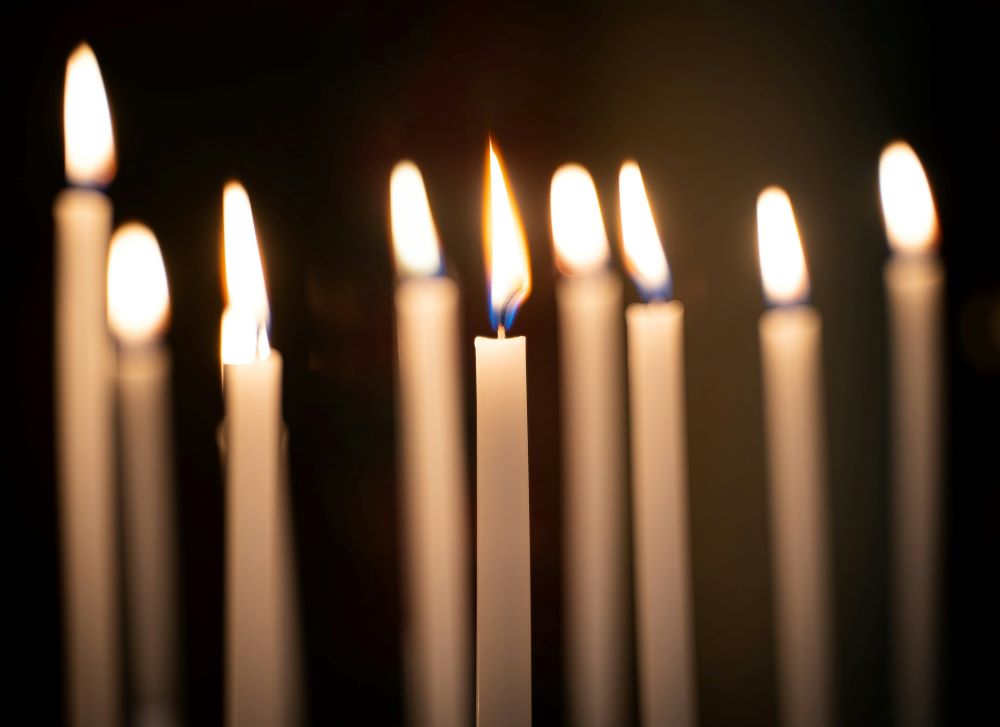
(Unsplash/RoonZ nl)
The darkness of winter is descending on the Northern Hemisphere. For many people, winter is a dreary and disheartening time. Perhaps that is why many ancient peoples, including our Jewish and Christian ancestors, chose the shadowy days around the winter solstice to ritually mark the first beginnings of the regrowth of sunlight after reaching its lowest point. These observances were reminders that the darkness was a simple astronomical cycle. The sun would return again.
In our world today, another type of darkness engulfs us, one that is not made less frightening by being cyclical. It is the shadow of war and death. It is the shadow of hatred. It is the shadow of inhumanity. It is a shadow that preys on past traumas. It is a shadowy darkness that saps hope and leaves everyone enshrouded in a sense of powerlessness and fear.
It is in the deepest darkness that the tiniest flicker of light shines most brightly.
This dark shadow that afflicts humanity today is at work in our nation, drawing its strength from the shadow sides of our history. I speak of the darkness that pits different members of God's children against one another. Or worse, a shadow that deliberately feeds on the lingering wounds of the past for the unholy purpose of inciting intergroup hatred. Verbal violence spreads on the internet like a metastasizing cancer. Political leaders consciously dehumanize those who disagree with their views. Incidents of racism, Islamophobia and antisemitism — sometimes accompanied by mass killings of ordinary people using weapons of war — are undeniably multiplying. The biblical words about walking "through the valley of the shadow of death" (Psalm 23:4) well describe the feelings of many.
Still, it is in the deepest darkness that the tiniest flicker of light shines most brightly. That glimmer is what Christians and Jews celebrate in December in their respective traditions. In the festival of Hanukkah, Jews commemorate the eight days of miraculous candlelight that shone in the rededicated Temple of Jerusalem in 164 BCE. On Christmas, Christians celebrate the birth of the Light of the World (John 8:12). Muslims worship according to a lunar calendar, and so do not mark the return of light at the winter solstice. But always for Islam "Allah is the light of the heavens and the earth" (Sura An-Nur, 35). An African American tradition during the observance of Kwanzaa at this time of the year is to light seven candles representing seven personal virtues from the heritage of Africans.
Advertisement
I recall these light-focused practices of various traditions to urge that they be given new and intense meanings in this dark time of shadows in which we are living. Even the garish displays of a thoroughly commercialized secular culture can be reminders of what is truly important.
I reject the darkness and turn to the light. I refuse the shadows and embrace the light of mutual respect and understanding. I will try to change my heart from the dehumanizing darkness of any kind of bigotry and recommit myself to venerating the irreplaceable uniqueness of each and every human being.
That is my prayer as a rabbi in Kislev 5784/December 2023. I invite everyone to share in it in their own ways, despite the darkness of our times.




